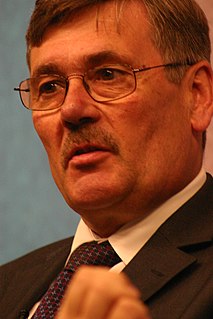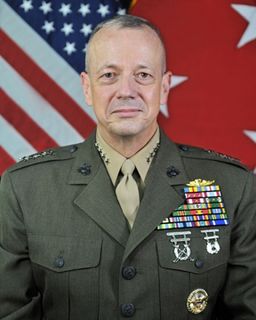A Quote by Lindsey Graham
The Afghan security forces will always have the help of the U.S. American military to ensure that Afghanistan never fails.
Related Quotes
As president, my goal in Afghanistan will be to complete a successful transition to Afghan security forces by the end of 2014. I will evaluate conditions on the ground and solicit the best advice of our military commanders. And I will affirm that my duty is not to my political prospects, but to the security of the nation.
If Afghan soldiers continue to kill American soldiers as is happening these days, it can hardly be assumed that they will stay in Afghanistan in the long term. And what role are they to play? There will not be enough soldiers to ensure the security of the country. But will the US still be permitted to kill terrorists in Afghanistan and Pakistan with un-manned drones? That could worsen the situation in the neighboring states and they could view Afghanistan as a threat.
































